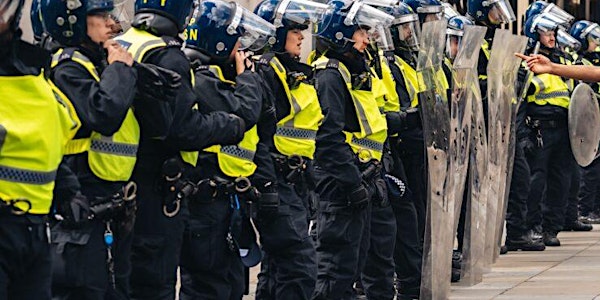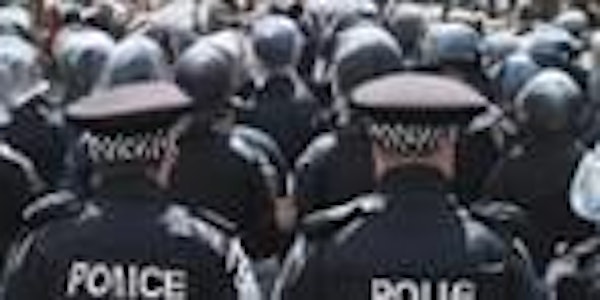The current government has increasingly criminalised protest, and often targeted racialised minorities in doing so. This webinar explores that dynamic, both from the perspective of critical criminology and sociology, and from the perspective of activists on the ground. New definitions of “extremism”, new and proposed legal tools, political interference in the policing of protests, demonisation of activism, and double standards in the policing of different protests have all been used to restrict the right to protest. Anti-racist and anti-fascist activists (including the Black Lives Matter movement and those standing up to deportation) as well as Palestine solidarity and environmental justice activists have experienced the cutting edge of these policies. How can we understand these changes, and their relationship to the wider Hostile Environment towards migrants and minorities? How can we forge new forms of solidarity and self-defence at a time when dissent is more vital than ever?
Aaron Winter will look at policing in the context of the Hostile Environment and the wider mainstreaming of racism and the far right under an increasingly reactionary government, including how extremism is being redefined to target Palestine solidarity and anti-fascist activism and other forms of protest.
In the context of mass protests in Europe against the unfolding genocide in Gaza, Liz Fekete will look at the media-generated hostile environment faced by the Palestinian diaspora, increasing restrictions imposed on the right to protest and the further weaponisation of the 2016 International Holocaust Remembrance Alliance’s Working Definition of Antisemitism, which conflates criticism of Israel with antisemitism, and is being used against Palestinians and others speaking out against the genocide.
Finally, Amardeep Singh Dhillon [TBC] will give an activist perspective, on how diverse local communities have demonstrated solidarity against the transphobic and racist right and against draconian policing and immigration control, despite legal attempts to regulate and limit dissent.
Speakers:
Aaron Winter is a senior lecturer in Sociology and Director of the Centre for Alternatives to Social and Economic Inequalities (CASEI) at Lancaster University and a founding member of the Social Scientists Against the Hostile Environment collective. His research is on the far right with a focus on racism, mainstreaming and violence, and on race, counterextremism and counterterrorism. Aaron is co-author, with Aurelien Mondon, of Reactionary Democracy: How Racism and the Populist Far Right Became Mainstream (Verso, 2020) and co-editor of Researching the Far Right: Theory, Method, Practice (Routledge, 2020). He is also co-editor of the journal Identities: Global Studies in Culture and Power.
Liz Fekete is director of the Institute of Race Relations and author of Europe’s Fault Lines: racism and the rise of the Right, which won the Bread and Roses award for Radical Publishing 2019.
Amardeep Singh Dhillon is a London-based anti-fascist and anti-deportation activist, freelance journalist, co-editor at Red Pepper magazine and member of South Asia Solidarity Group. Amardeep was arrested last year under the Public Order Act 1986 (amended in 2022’s Police, Crime, Sentencing and Courts Act) for protesting against a far right mobilisation at a drag queen story time at a South London pub.
Co-chairs: Avtar Brah, Ben Gidley, Ann Phoenix

